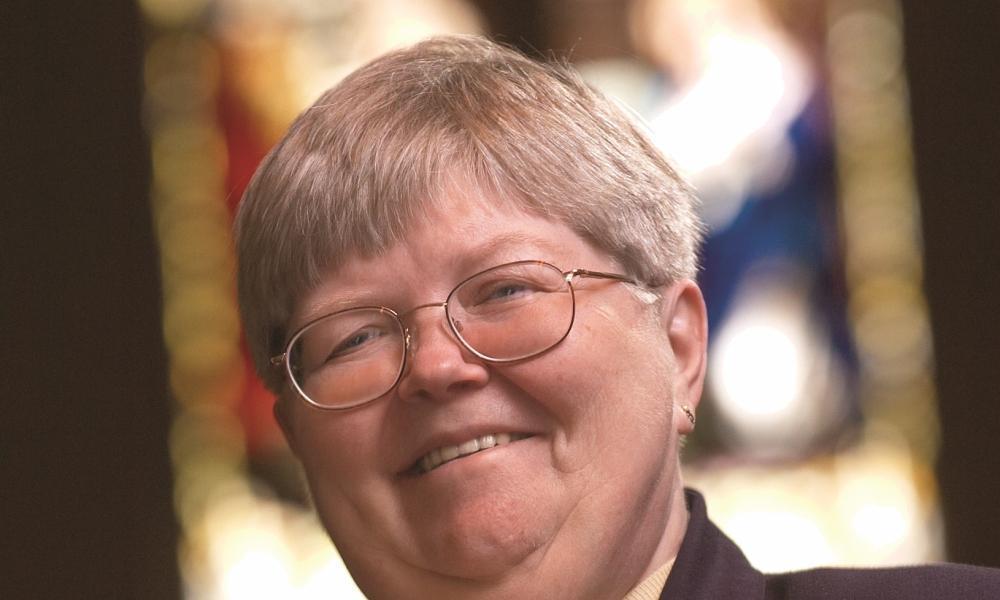
Vocations Part 4: God's Quiet Call to the Consecrated Life. How Sr. Carla Responded.
Who Are You Called to Be? Your Vocation is a Gift From God to Us All.
Who Are You Called to Be? Your Vocation is a Gift From God to Us All.
A series on Vocations By: Sr. Carla Moeggenborg, Fr. Matt Fedewa and Elizabeth Solsburg, Editorial Director for FAITH Magazine.
A series on Vocations By: Sr. Carla Moeggenborg, Fr. Matt Fedewa and Elizabeth Solsburg, Editorial Director for FAITH Magazine.
I knew nothing about religious life while growing up in rural central Michigan. Our family was faith-filled; on Sunday mornings we went to early Mass so we could get home to tend the livestock. We attended catechism classes and were present at some of the devotions offered in our parish. We gathered after each evening’s meal to recite the rosary together. We learned to help – our parents, our siblings, our neighbors.
My dream was to become a teacher. I worked hard and was awarded a college scholarship. I was thrilled to think my childhood dream was coming true.
Then, during my freshman year at Central Michigan University, I heard that quiet inner voice I came to know as God’s. I tried without success to quiet that subtle stirring. Finally, I decided to investigate.
My first question was ‘Why me?’ Then, ‘Where do I look?’ I had never even met a sister before. Slowly I made plans – to get information, tell my mother, let my friends know what I was thinking.
On Sept. 8, 1962, my family drove to Marywood, the home of the Grand Rapids Dominicans. I stepped across the threshold into a life of blessings.
This has been the adventure of a lifetime! With my community, I stand alongside women who seek to preach God’s word in their daily work – in classrooms, hospitals, prisons, parishes and a myriad of other settings. I have supported and been supported by these faith-filled women. I have taught in schools throughout the state of Michigan, worked with the poor, the rural, the suburban, the affluent. I have listened to, prayed with and ministered to many. I have been sustained in ministry by my sisters; from them I have received life. I have seen the face of God.
In my community, I have been challenged to journey with God. I have proudly worked to help provide for those women who came before me and who now spend their retirement preparing for their final call. I have offered and been offered prayers, love and support in difficult times and in times of celebration. I cannot imagine my life being anything but what it is and what it will be.
If you feel that nudge, that quiet inner voice, listen intently. It may be overwhelming but it is worth exploration. There are frontiers within each of us – reach beyond them and become all God wants you to be.
– Sr. Carla Moeggenborg
How does God call us? let us count the ways.
There is an all-or-nothing feeling about a religious call that can be confusing. A religious sister I know experienced that with her vocation to the religious life. Remembering when and where the ‘call’ came, Sr. Joanne says today, is as clear as remembering where you were when you first heard of 9/11. It was the library on the second floor at CMU. It was January, and her friends were reminding her it was time to pay a deposit and sign up for next year. Out of thin air, the words she spoke seemed to come from someone else, “I will not be here next year. I will be going to Aquinas College and to the convent.”
Sister Kathleen Bryant, RSC has devised a Vocations Anonymous Test.
An inquirer is asked these questions:
Do you hide vocation literature under your bed or away in a closet?
Does the idea of becoming a sister, priest or brother keep coming back time and time again, even though you thought you had moved on in your life and forgotten about it?
Do you feel called to give more, to be more?
Does your relationship with God sustain you, enliven you and invigorate you in such a way that you want to share the Good News with others?
Do you find a ministry you are doing at church more life-giving and energizing than your 40-hour-a-week job, or your major at college?
Do you long for more?
Do your have a sneaking suspicion that you are on the brink of a major life decision?
Are you afraid to tell your friends and family that you are thinking about a church vocation?
Does the idea of becoming a priest or religious excite you, even while it frightens you, because you feel unworthy or unprepared?
– Fr. Matt Fedewa
Consecrated life
From the church’s earliest days, men and women have followed unique paths in their response to God’s call. Many became hermits or founded religious communities, wonderful in their variety. The Second Vatican Council recognized the beauty of this diversity, stating, “This has considerably contributed toward enabling the church ... to manifest in herself the multiform wisdom of God.” (Perfectae Caritatis 1)
At the same time, Vatican II called for a renewal of spirit in religious communities, asking them to re-examine their charters and determine if any changes were needed. All community members were encouraged to become involved in the renewal process, and the documents stated that, “The manner of life, of prayer and of work should be in harmony with the present-day physical and psychological condition of the members. It should also be in harmony with the needs of the apostolate, in the measure that the nature of each institute requires, with the requirements of culture and with social and economic circumstances.” (Perfectae Caritatis 3)
Vatican II recognized the benefit of the two major forms of religious community: active and contemplative. The active orders were exhorted to “cultivate the spirit of prayer and prayer itself ... they should nourish their spiritual lives.” Having done so, they are then ready to “dedicate themselves wholeheartedly to [the church’s] mission.” (Perfectae Caritatis 6)
Contemplatives were hailed as those who “lend luster to God’s people with abundant fruits of holiness, they ... enlarge the church by their hidden apostolic fruitfulness.” They were also encouraged to renew themselves, with “the greatest care being taken to preserve their withdrawal from the world and the exercises which belong to the contemplative life.” (Perfectae Caritatis 7)
All are reminded that “in the church there are very many institutes ... engaged in different kinds of apostolic work and endowed with gifts which vary according to the grace that is given to them. ... ‘There are varieties of gifts, but the same Spirit.’” (Perfectae Caritatis 8)
– Elizabeth Solsburg



